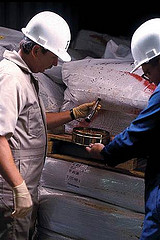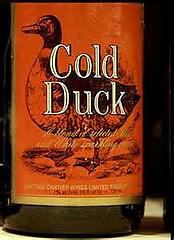
The current collapse of the world financial system has revealed some structural problems in our national economy that have flourished over a period of decades as corporate interests bought politicians and lobbyists to craft legislation to remove legal roadblocks to mass theft and market manipulation. And despite some changes in the D.C. political landscape, our government remains apparently helpless to do anything about corporate malfeasance on any level. With all the bad economic news dominating the public consciousness, some issues in the food supply sector are having a difficult time being properly correlated and attended to despite the serious level of danger they present to public health.
The food supply issues didn’t begin with the market manipulations on Wall Street and from there to exchanges all over the world. Though for many people the first alarms went off as the CDS fraud crashed the economy in 2008 and the financial players went looking for other markets to wreak havoc on. They seized on commodities – staple foods from the agricultural sector increasingly dominated by multinational corporations like Monsanto, ADM and Cargill. As a traceable beginning in 2008 to what this year became the “Arab Spring” movement across North Africa and spreading to the Middle East and southern Asia, food riots broke out in Egypt and Syria and portions of India as well as elsewhere when people could no longer afford to feed themselves and their families. Things have only gotten worse in the years since, and Americans are slowly waking up.
In 2011 a full quarter of the U.S. population are dependent on food stamps. As unemployment keeps on rising, the government strangely keeps slashing the food stamp budget to appease nutty Republican radicals who insist those hardest hit by the Great Recession are just “lazy” and undeserving of aid that might require corporations and billionaires to pay taxes. Why one of the political parties in our nation believes that Americans will quietly and without complaint starve to death in the streets in order to protect billionaires from paying as much of their income in taxes as their chauffeur does has never been explained by the financial sector’s pundits at the New York Times or Wall Street Journal. Major cognitive disconnect.
But serious food supply issues encompass much more than just market manipulation and governmental paralysis. Consider some of these issues while attempting to get a picture of how dire the overall situation is…
Honey Laundering: China’s at it again – Adulterating pet and human foods with melamine wasn’t bad enough – though one corporate scapegoat was executed by the Chinese government hoping to save its place as cheap ingredients supplier to the world – the latest food scam involves honey. Not just fake honey in those little bee-shaped plastic bottles, Chinese honey brokers are creating honey by mixing sugar water, malt sweeteners, corn/rice syrup, barley malt and a variety of unrefined sugars. Failure to police storage requirements has resulted in heavy metal contamination as well, primarily lead.
If you’ve been thinking about beekeeping for honey (and handy pollinators), this is the year to get busy on it. Extension services in many rural counties offer literature, evening classes, and instructions on building hives. Agents often know who in the area builds hives for sale, and aren’t shy of giving out that information. Many people who are trying hard to eat better and healthier are being taken in by the Chinese honey scam, and big food processors using that fake honey in their supposedly ‘natural’ food lines are risking their markets. Grow your own honey or buy locally from someone honest.
Time to re-engineer the meatpacking sector – Late July brought the second largest tainted meat recall so far, when Cargill’s meat packing division recalled ~36 million pounds of ground turkey products tainted with a multi-drug resistant strain of Salmonella. The biggest recall was in 2008, when a slaughterhouse in California recalled 143 million pounds of beef due to allowing downer cows into the mix. The dangers to public health from e.coli, salmonella, listeria and other bacteria, and from adulterants and contaminates are high, yet our government doesn’t give the Food and Drug Administration [FDA] the power to force food recalls. Companies have to do this voluntarily, and they don’t often volunteer until people start dying and CDC tracks the source down.
If your family eats meat, now is the time to seriously consider raising your own or contracting with a neighbor who raises meat animals. A side of beef from a calf pastured for a year, dressed whole chickens raised happily free range, maybe rabbit stew meat, a slab of locally smoked bacon and/or ham… buying from known sources or doing it yourself could easily save your family’s lives. The more that control of our commercial food supply gets concentrated into the greedy hands of a few, the more danger is present overall. Avoid it like the plague it truly is.
The Nation has a good article looking at How change is going to come in the food system despite united resistance of the big corporate players to cater to public demands for better, less adulterated and far less fattening foods. There is a lot of good information in this article’s analysis to arm yourself with when next you try arguing with a friend, relative or acquaintance about the importance of healthy food and the severe shortage of it in our commercial food supply.
And finally, the good news. The New York Times informs us that vegetable gardens are booming in a fallow economy. We homesteaders have of course known this all along – and have done more than our share to get more people digging and grow the local markets – but we should always welcome mainstream coverage that helps to spread awareness. Recent movement in many states to allow the use of food stamps at farmer’s markets and bulk purchases straight from farmers are helping more people to get more and better food than they could purchase in the grocery store.
Many localities are also sponsoring seed exchanges through the Lions or Ruritan, sometimes through local Chambers of Commerce, 4-H and FFA clubs at high schools. These have committees in charge of getting open-pollinated seeds from local gardeners and farmers, packaging them, and then distributing them free in the late winter and early spring to local residents planning their season’s garden crops. Local schools and civic clubs are offering gardening classes and contacts to suppliers of tool exchanges, equipment like chicken coops and bee hives, and farmers who sell chicks, calves, kids and kits to those wishing to raise their own meat animals. Local butchers are making a comeback, and in many states the Extension Service offers classes all the way up to Master Gardening certification. So get busy, and get your neighbors busy making best use of all these developing local alternatives to Big Ag and Big Food, Inc. We will be a much happier and healthier nation for it, and probably much smarter as a people for our awareness and direct involvement in this most important aspect of everybody’s lives.



